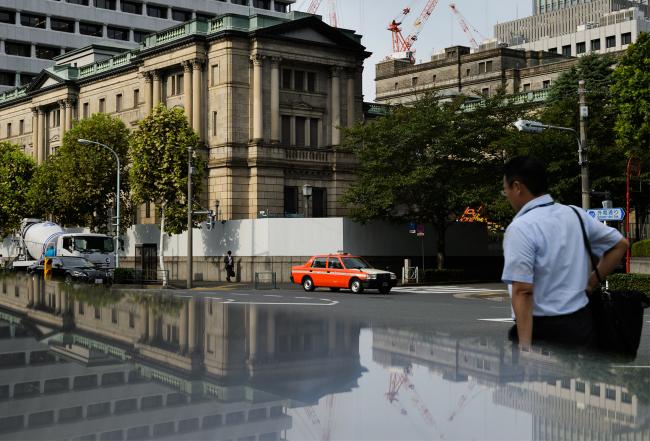(Bloomberg) -- The Bank of Japan should add more monetary stimulus to the economy now to help bolster inflation in advance of a sales-tax hike, according to a prominent reflationist.
“Additional monetary easing is needed,” Masazumi Wakatabe, a Waseda University professor, said in an interview on Tuesday. “It’s highly unlikely that price momentum will be strong enough prior to the 2019 tax increase.”
Wakatabe’s comments echo those of Goushi Kataoka, the sole dissenter on the BOJ board, who’s called for more action. Their views run counter to forecast from the vast majority of economists, who expect the bank’s next move will be to tighten policy.
Even so, some observers think Wakatabe, 52, is a potential candidate for one of the two deputy governor positions that will open in March next year. Governor Haruhiko Kuroda, whose current term ends in April, is seen by many economists as likely to be reappointed.
Read more about the potential candidates to lead the BOJ.
Options for further stimulus include raising the bond purchase guideline to 90 trillion yen ($794 billion) a year from the current 80 trillion yen, and increasing the inflation target to 3 percent, from 2 percent currently, to lift up expectations, he said.
While Wakatabe declined to comment on who may be appointed to the top positions at the BOJ, he said they should be by people who are like single-minded machines in pursuing the price target.
While the BOJ forecasts that inflation will hit the target in around the year starting in April 2019, Wakatabe, said “no one at this point can assert that the inflation target will be met even in 2020 or 2021.”
Read more on Japan’s latest inflation report.
Wakatabe, who was speaking by telephone from New York, where he is currently a visiting fellow at the Columbia Business School, was critical of Kuroda for indicating support for an earlier increase in the sales tax in 2014. Kuroda has refrained from indicating his stance for the next planned tax increase.
With inflation less than half way to the target, it was also inappropriate for Kuroda to generate speculation about policy adjustments by mentioning the “reversal rate” theory in November, Wakatabe said. “There is no evidence that such thing is happening in Japan,” he said.
At the same time, Wakatabe said he felt sympathy for the BOJ because Prime Minister Shinzo Abe’s fiscal policy hadn’t been helpful.
“Fiscal policy has been contractionary under Abenomics, except in 2013,” Wakatabe said. “Japan’s monetary policy meets global standard but fiscal measures don’t.”
